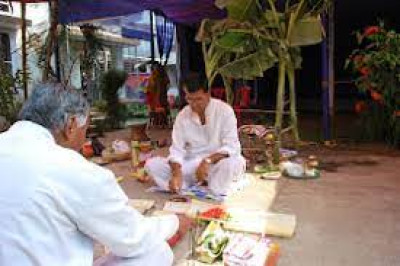What Is The Doha Ritual In Assamese Culture After Death?



The word Doha is derived from doi (two) and ha (nine), symbolizing the ninth day ritual.
It marks the conclusion of the initial mourning period and is considered an important step in post-death ceremonies.
Family and relatives gather at the deceased person’s home.
A priest (or family elder) conducts prayers and rituals, often involving offerings of rice, sesame, flowers, and holy water.
Purification rituals are performed, including washing or discarding certain items used by the deceased.
In some households, food is prepared and shared among relatives and neighbors as part of the remembrance.
Assamese belief holds that by the ninth day, the soul transitions further in its spiritual journey.
The Doha ritual ensures that the departed receives blessings and peace.
It also symbolizes the end of the family’s mourning restrictions and the return to normal life with blessings for continuity.
Helps family members offer final respects to the departed soul.
Strengthens the bond of community support through shared mourning.
Preserves Assamese cultural identity by continuing age-old death rituals.
In Assamese culture, the Doha ritual is one of the most important after-death ceremonies, observed on the ninth day. It represents purification, spiritual guidance, and collective remembrance. For families in Assam, it is a moment of closure, respect, and cultural continuity.